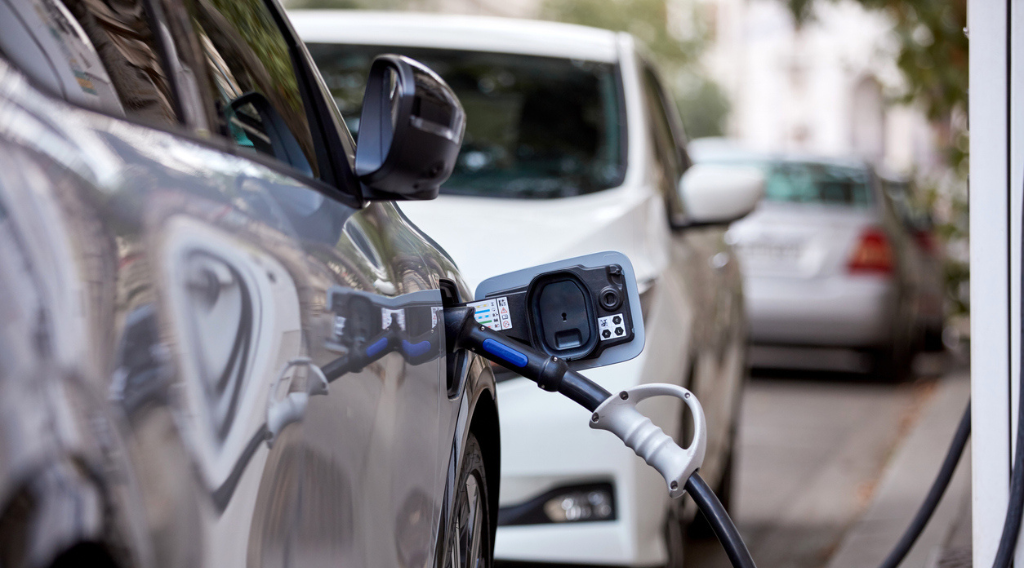
In 2014, we wrote about “A New Approach to Small Business Energy Efficiency,” in which we described the unique barriers—time, knowledge, and trust—that small businesses face in identifying and enacting energy efficiency improvements. We proposed that the best solution may not be a technological one, but a social one—partnering with individuals who have existing relationships with small businesses in their community and training them as “energy coaches” who can provide the commitment, information, and trust that resource-limited business owners require.
Since then, we’ve learned a lot about our proposed partnership-based solution. We ran a pilot to test the “energy coach” approach on Lake Street in Minneapolis, Minnesota in which, over the course of 18 months, the staff at the Lake Street Council helped 85 businesses get a free energy assessment that indicated opportunities for each business to save energy. Several of those businesses moved forward with investments in energy efficient lighting, HVAC, or kitchen equipment. We gained critical experience through that successful project and decided to explore additional opportunities to make an even greater impact in the Twin Cities.
Before we describe our recent projects, it is important to emphasize the vital role that small business owners play in our communities and in our energy system, and that they continue to face challenges in addressing energy efficiency. Small businesses offer goods and services close to where people live, provide good-paying jobs, and grow local economies. And for many small business owners, the cost of utilities ranks as a top business concern with a massive impact (in aggregate) on energy spending. According to research from ACEEE and others, small and medium businesses “represent 90% of US businesses and consume about 20% of US energy, but they attract less than 4% of utility energy efficiency spending.” This is a sector that commits a significant amount of energy and spending to power, heat, and cool the spaces they rent or own—spaces that may have never received an energy assessment due to the difficulties of working with the small business market compared to larger commercial and industrial businesses.
We launched the Twin Cities Small Business Energy Initiative (TC SBEI) to address these barriers and deploy appropriate solutions. In starting the initiative, we saw a need for more small business owners and operators to learn about and act upon opportunities to improve the energy performance of their facilities using strategies that address their unique challenges. In particular, we have focused on facilitating partnerships between locally-based organizations and energy efficiency programs. These partnerships allow those programs to benefit from using the right messenger—a person or organization who has stronger relationships, trust, and outreach capacity in a given community.
>> Click here to read a case study on small business energy coaching
What is the Twin Cities Small Business Energy Initiative?
The goal of the Twin Cities Small Business Energy Initiative is to help small (and even medium-sized) businesses thrive by creating a platform for engaging them in energy solutions. This “platform” has two key components:
- An Advisory Committee, representing the utilities, energy efficiency service providers, contractors, financiers, and others who have a stake in the success of small business energy efforts and who are helping to ensure the effectiveness of this work.
- Local energy coaching programs, which fund, train, and deploy energy coaches to conduct outreach to their local businesses and work together with energy efficiency service providers to identify and encourage action on cost-effective projects.
This work is happening as part of the nationwide Small Business Energy Initiative, a project of the Institute for Market Transformation and funded by the US Department of Energy that is advancing small business energy efficiency by working in partnership with chambers of commerce and communities across the nation. By working together, our goal is to increase the opportunity to advance energy efficiency, equity, and economic development for the small businesses that define our communities.
Work of the Advisory Committee to Date
The Twin Cities area is unique for the large number of organizations already working in the small business energy space. Therefore, we saw a need for an Advisory Committee to ensure that this work builds upon, rather than duplicates, existing efforts. The committee currently includes participants from the following organizations:
- Center for Energy and Environment
- CenterPoint Energy
- Citizen’s Utility Board of Minnesota
- City of Minneapolis
- Clean Energy Economy MN
- Council of Smaller Enterprises
- Institute for Market Transformation
- Lake Street Council
- Minnesota Chamber of Commerce
- Minnesota Clean Energy Resource Teams
- Xcel Energy
- Great Plains Institute
To guide our work, the Advisory Committee has developed the following four objectives (for a full listing of objectives, click here):
- Define and refine the energy coaching model, including optimizing roles between energy coaches and utility-funded energy efficiency service providers.
- Demonstrate the impact of the energy coaching model through measurement and evaluation, including developing a model to measure the costs and benefits of this approach to all key stakeholders.
- Provide continuous feedback and high-level recommendations as appropriate on program and rate designs across the Twin Cities, including identifying opportunities for programs and rates to better serve the small business audience.
- Plan strategically for the development of the energy coaching model in Minnesota, including considerations to sustain and expand this model where and when it makes sense to do so.
Inherent in these objectives is a willingness among all parties to work towards solutions that address the unique challenges of the small business audience. To date, the committee has addressed the first two objectives, with the most recent meeting focused on developing a measurement model for energy coaching (more info on that coming soon). Looking forward, we hope this committee can help to continue identifying opportunities to better reach and serve the needs of small business customers in the greater Twin Cities area.
Minneapolis E-TAP Program
In the first of what we hope will be several local partners to adopt this model, the City of Minneapolis has developed the Energy Technical Assistance Program (E-TAP). The goal of E-TAP is to guide small businesses to implement energy cost-saving practices within their operations.
E-TAP is the newest tool in the Business Technical Assistance Program (B-TAP), a suite of programs offered by the City of Minneapolis Community Planning & Economic Development Department. B-TAP’s services are designed to help small businesses learn about and navigate the challenges of entrepreneurship. In a unique and award-winning approach, B-TAP programs (including E-TAP) utilize and expand upon the resources and expertise of existing community organizations to help reach businesses that the City would otherwise struggle to reach.
The E-TAP program launched a request for proposals for local business-serving organizations in July, and by August the city had selected the following six organizations to participate in the program:
- West Bank Business Association
- West Broadway Business & Area Coalition
- NE Minneapolis Chamber
- EnerChange
- Minnesota Interfaith Power & Light
- Neighborhood Development Center
In September, we facilitated a training for the incoming E-TAP organizations that covered common energy use patterns in businesses, opportunities for increased efficiency, expected challenges, outreach strategies, and recommendations for how to best utilize local resources. In the months since the training, E-TAP organizations have begun to reach out to businesses throughout Minneapolis, with a focus in Minneapolis’s Green Zones, to recruit businesses to receive free energy assessments from utility program implementers like Center for Energy and Environment’s One Stop Program and Energy Smart.
Looking Forward
In the next year, we expect to learn more from testing energy coaching through the Minneapolis E-TAP program, refining this approach and measuring its costs and benefits. We also hope to find additional communities that would like to deploy this model. Thanks to our Advisory Committee, we have a set of guidelines for this method that allows flexibility for different local contexts and a feedback loop for ensuring the work is supplementing existing efforts.
We started this work because we saw a need for a greater focus on small businesses as a key audience in Minnesota’s energy system. In the Twin Cities, many local commercial enterprises continue to miss important energy improvement opportunities that can save money and energy alike. The most important strategies to reach small business owners may come from a mix of both technological and social solutions. By working together, we have the opportunity to advance energy efficiency, equity, and economic development for the small businesses that define our communities.


